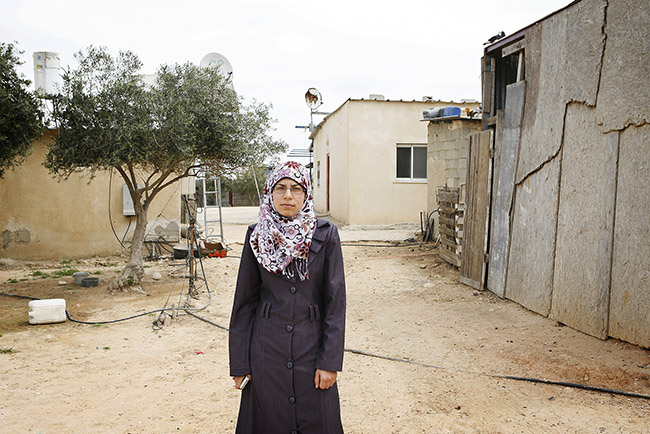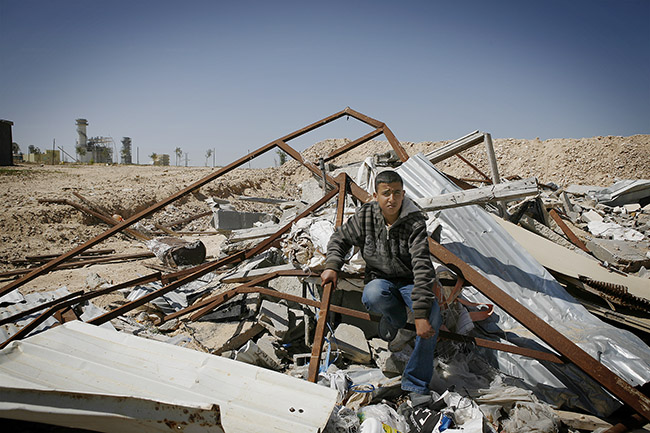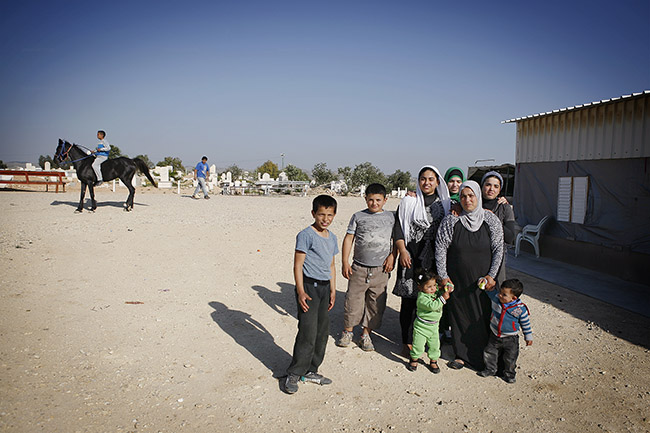I shot this photo series for AJE and with the help of the local NGO Negev Coexistence Forum. I visited a number of unrecognized and recognized Bedouin localities in the Negev, Israel, to meet some of the families affected by home demolitions and demolition orders.
Bedouin home demolitions in Israel have increased, as the state plans to displace up to 40,000 citizens.
“The ground is being prepared for the mass evictions of residents.” That is the conclusion of a new report that details an increase in home demolitions in Bedouin villages in Israel’s southern Negev desert.
Between January 2012 and July 2013, 1,261 homes in Bedouin villages were demolished in the Negev, according to a report released by the joint Arab-Jewish group, Negev Coexistence Forum (NCF). This number marks a sharp increase from 2008, when less than 250 Bedouin homes were demolished.
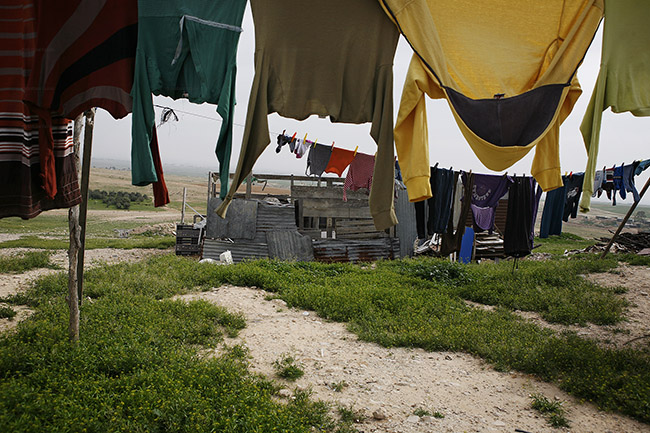 “The result of the home demolition policy is that thousands of people are left homeless every year,” Haia Noach, director of NCF, told Al Jazeera. “Israel is violating international human-rights covenants and its own Basic Law and is disguising it as an illegal act on the side of the Bedouin.”
“The result of the home demolition policy is that thousands of people are left homeless every year,” Haia Noach, director of NCF, told Al Jazeera. “Israel is violating international human-rights covenants and its own Basic Law and is disguising it as an illegal act on the side of the Bedouin.”
Approximately 220,000 Bedouin citizens of Israel live in the country’s southern desert region. About half the community lives in villages that are unrecognised by the state (and do not receive basic services such as water, electricity and paved roads), while the other half live in newly-recognised villages or government-planned townships.
The Israeli government has devised a plan, known as the Prawer-Begin plan, which, if passed into law, would legalise the scrapping of most unrecognised Bedouin villages, forcibly displace up to 40,000 Bedouin citizens to recognised towns, and transfer ownership of disputed lands to the state. The plan has been transferred from the prime minister’s office to the ministry of agriculture, and its implementation is currently frozen.
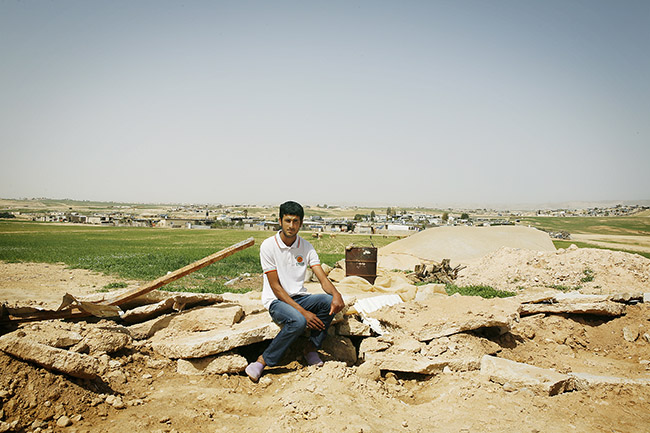 At the height of demonstrations against the Prawer-Begin in July 2013, General Doron Almog, director of the Headquarters for Economic and Community Development of the Negev Bedouin, told Al Jazeera that the regularisation of Bedouin settlement is necessary in order to implement the state’s development plans. Almog said that the Prawer-Begin plan will bring Bedouin citizens to the same socioeconomic level as the area’s Jewish citizens.
At the height of demonstrations against the Prawer-Begin in July 2013, General Doron Almog, director of the Headquarters for Economic and Community Development of the Negev Bedouin, told Al Jazeera that the regularisation of Bedouin settlement is necessary in order to implement the state’s development plans. Almog said that the Prawer-Begin plan will bring Bedouin citizens to the same socioeconomic level as the area’s Jewish citizens.
Human rights groups in Israel and abroad have widely denounced the Prawer-Begin plan as a land grab that will exclude Bedouins from development. NCF argues that the plan provides “governmental cover for a massive extension of home demolitions”, and will exacerbate already-tense relations between the state and its Bedouin minority.
